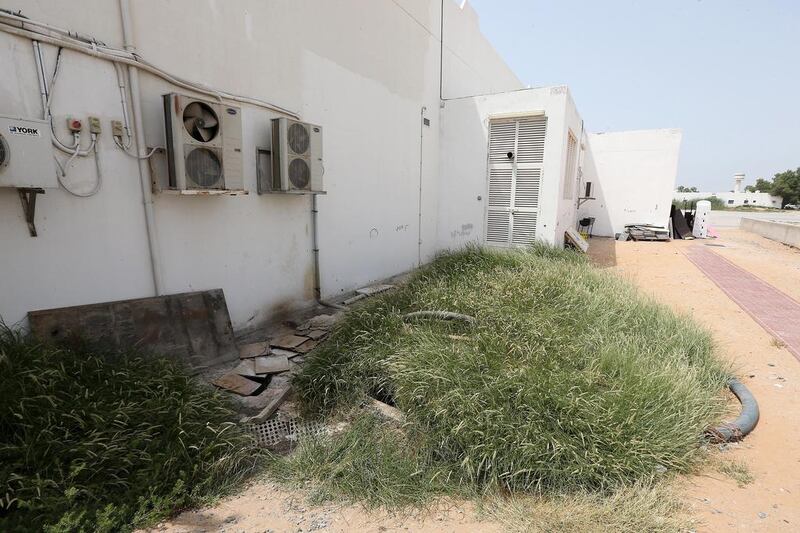UMM AL QUWAIN // Large pools of raw sewage regularly form around buildings in UAQ, much to the dismay of residents and business owners.
They say the wastewater emits foul odours, has become a breeding ground for flies and mosquitos, and presents a health risk to people.
But there is an apparent confusion as to just who is responsible for removing the sludge.
Residents in the emirate are calling on UAQ Municipality to clean the mess up.
The civic body, however, says it is the responsibility of the individual property owners.
“On my first day of work in my supermarket I smelt a foul odour inside the mall, and I noticed a deluge of sewage around every building, even the places where I live and work,” said Mohammed Issa, a Syrian supermarket worker who moved to UAQ four months ago.
“It floods on about two or three days a week behind the building, so it doesn’t affect the parking or streets, it just causes unpleasant smell.”
Mr Issa, 25, said the odours were overpowering at times.
“The bad smell that is all over the place, it makes the emirate seem uncivilised,” he said.
“I did not complain to the municipality because it is a general issue that exists everywhere in the emirate, and is not only limited to my building.”
He said customers often complained about the smell to him.
Sakina Mohamad, 30, an emirati cashier, said the pools of water created a mosquito problem.
“There seems to be no care about the cleanliness in Umm Al Quwain,” Ms Mohamad said.
“I would really like the municipality to give the matter some serious attention.”
Ali Eslam, 25, a shop manager from Iran, said an overflow of sewage had been behind his shop for more than a month.
“This problem led to the proliferation of flies and the spread of the unpleasant odours inside and outside the shop,” he said.
“We told the owner of the building and he said he will fix the problem by building a bigger sewage outlet, but that will cost Dh30,000.”
A spokesman for the municipality’s public works department said property owners needed to take responsibility themselves.
“It is not the duty of our department and UAQ municipality to bring the sewage-suction vehicle,” the spokesman said.
“Our department is only responsible for the cleanliness of all government departments and the owner of the building is responsible for solving the sewage problem and renting the vehicle.”
He said the municipality’s department of health would warn property owners if they did not keep the area clean.
A spokesman for the health department said: “We have never received any health complaints by anyone affected by this issue.”
He said the problems were often caused by owners neglecting the drainage in their buildings.
“If the pipes become blocked it can easily flood the area,” he said. “It all depends on the consumption amount of residents.
“With old, broken pipes the sewage can often flood the area when it rains. But if you have new sewage pipes, this rarely happens.”
newsdesk@thenational.ae





